Vittorio, The Vampire - New Vampires 02 Read online
Vittorio, The Vampire – New Vampires 02
Anne Rice
With Pandora, Anne Rice began a magnificent new series of vampire novels. Now, in the second of her New Tales of the Vampires, she tells the mesmerizing story of Vittorio, a vampire in the Italian Age of Gold.
Educated in the Florence of Cosimo de' Medici, trained in knighthood at his father's mountaintop castle, Vittorio inhabits a world of courtly splendor and country pleasures—a world suddenly threatened when his entire family is confronted by an unholy power.
In the midst of this upheaval, Vittorio is seduced by the vampire Ursula, the most beautiful of his supernatural enemies. As he sets out in pursuit of vengeance, entering the nightmarish Court of the Ruby Grail, increasingly more enchanted (and confused) by his love for the mysterious Ursula, he finds himself facing demonic adversaries, war and political intrigue.
Against a backdrop of the wonders—both sacred and profane—and the beauty and ferocity of Renaissance Italy, Anne Rice creates a passionate and tragic legend of doomed young love and lost innocence.
A Main Selection of the Literary Guild
VITTORIO, THE VAMPIRE
NEW TALES OF THE VAMPIRES
ANNE RICE
ALFRED A. KNOPF NEW YORK • TORONTO 1999
DEDICATION BY ANNE RICE
This novel is dedicated to Stan, Christopher, Michele and Howard; to Rosario and Patrice; to Pamela and Elaine; and to Niccolo.
This novel is dedicated by Vittorio to the people of Florence, Italy.
1
WHO I AM, WHY I WRITE, WHAT IS TO COME
WHEN I was a small boy I had a terrible dream. I dreamt I held in my arms the severed heads of my younger brother I and sister. They were quick still, and mute, with big fluttering eyes, and reddened cheeks, and so horrified was I that I could make no more of a sound than they could.
The dream came true.
But no one will weep for me or for them. They have been buried, nameless, beneath five centuries of time.
I am a vampire.
My name is Vittorio, and I write this now in the tallest tower of the ruined mountaintop castle in which I was born, in the northernmost part of Tuscany, that most beautiful of lands in the very center of Italy.
By anyone's standards, I am a remarkable vampire, most powerful, having lived five hundred years from the great days of Cosimo de' Medici, and even the angels will attest to my powers, if you can get them to speak to you. Be cautious on that point.
I have, however, nothing whatsoever to do with the "Coven of the Articulate, " that band of strange romantic vampires in and from the Southern New World city of New Orleans who have regaled you already with so many chronicles and tales.
I know nothing of those heroes of macabre fact masquerading as fiction. I know nothing of their enticing paradise in the swamplands of Louisiana. You will find no new knowledge of them in these pages, not even, hereafter, a mention.
I have been challenged by them, nevertheless, to write the story of my own beginnings—the fable of my making—and to cast this fragment of my life in book form into the wide world, so to speak, where it may come into some random or destined contact with their well-published volumes.
I have spent my centuries of vampiric existence in clever, observant roaming and study, never provoking the slightest danger from my own kind, and never arousing their knowledge or suspicions.
But this is not to be the unfolding of my adventures.
It is, as I have said, to be the tale of my beginnings. For I believe I have revelations within me which will be wholly original to you. Perhaps when my book is finished and gone from my hands, I may take steps to become somehow a character in that grand roman-fleuve begun by other vampires in San Francisco or New Orleans. For now, I cannot know or care about it.
As I spend my tranquil nights, here, among the overgrown stones of the place where I was so happy as a child, our walls now broken and misshapen among the thorny blackberry vines and fragrant smothering forests of oak and chestnut trees, I am compelled to record what befell me, for it seems that I may have suffered a fate very unlike that of any other vampire.
I do not always hang about this place.
On the contrary, I spend most of my time in that city which for me is the queen of all cities— Florence—which I loved from the very first moment I saw it with a child's eyes in the years when Cosimo the Elder ran his powerful Medici bank with his own hand, even though he was the richest man in Europe.
In the house of Cosimo de' Medici lived the great sculptor Donatello making sculptures of marble and bronze, as well as painters and poets galore, writers on magic and makers of music. The great Brunelleschi, who had made the very dome of Florence's greatest church, was building yet another Cathedral for Cosimo in those days, and Michelozzo was rebuilding not only the monastery of San Marco but commencing the palazzo for Cosimo which would one day be known to all the world as the Palazzo Vecchio. For Cosimo, men went all over Europe seeking in dusty libraries long forgotten the classics of Greek and Rome, which Cosimo's scholars would translate into our native Italian, the language which Dante had boldly chosen many years before for his Divine Comedy.
And it was under Cosimo's roof that I saw, as a mortal boy of destiny and promise—yes, I myself saw—the great guests of the Council of Trent who had come from far Byzantium to heal the breach between the Eastern and Western church: Pope Eugenius IV of Rome, the Patriarch of Constantinople and the Emperor of the East himself, John VIII Paleologus. These great men I saw enter the city in a terrible storm of bitter rain, but nevertheless with indescribable glory, and these men I saw eat from Cosimo's table.
Enough, you might say. I agree with you. This is no history of the Medici. But let me only say that anyone who tells you that they were scoundrels, these great men, is a perfect idiot. It was the descendants of Cosimo who took care of Leonardo da Vinci, Michelangelo and artists without count. And it was all because a banker, a moneylender if you will, thought it splendid and good to give beauty and magnificence to the city of Florence.
I'll come back to Cosimo at the right point, and only for a few brief words, though I must confess I am having trouble being brief here on any score, but for now let me say that Cosimo belongs to the living.
I have been in bed with the dead since 1450.
Now to tell how it began, but allow me one more preface.
Don't look here, please, for antique language. You will not find a rigid fabricated English meant to conjure castle walls by stilted diction and constricted vocabulary.
I shall tell my tale naturally and effectively, wallowing in words, for I love them. And, being an immortal, I have devoured over four centuries of English, from the plays of Christopher Marlowe and Ben Jonson to the abrupt and harshly evocative words of a Sylvester Stallone movie.
You'll find me flexible, daring, and now and then a shock. But what can I do but draw upon the fullest descriptive power I can command, and mark that English now is no more the language of one land, or even two or three or four, but has become the language of all the modern world from the backwoods of Tennessee to the most remote Celtic isles and down under to the teeming cities of Australia and New Zealand.
I am Renaissance-born. Therefore I delve in all, and blend without prejudice, and that some higher good pertains to what I do, I cannot doubt.
As for my native Italian, hear it softly when you say my name, Vittorio, and breathe it like perfume from the other names which are sprinkled throughout this text. It is, beneath all, a language so sweet as to make of the English word "stone" three syllables: pi-ea-tra. There has never been a gentler language on earth. I speak all other tongues with the I
talian accent you'll hear in the streets of Florence today.
And that my English-speaking victims find my blandishments so pretty, accented as they are, and yield to my soft lustrous Italian pronunciations, is a constant source of bliss for me.
But I am not happy.
Don't think so.
I wouldn't write a book to tell you that a vampire was happy.
I have a brain as well as a heart, and there hovers about me an etheric visage of myself, created most definitely by some Higher Power, and entangled completely within the intangible weave of that etheric visage is what men call a soul. I have such. No amount of blood can drown away its life and leave me but a thriving revenant.
Okay. No problem. Yes, yes. Thank you!—as everybody in the entire world can say in English. We're ready to begin.
Except I want to give you a quote from an obscure but wonderful writer, Sheridan Le Fanu, a paragraph spoken in extreme angst by a haunted character in one of his many exquisitely written ghost stories. This author, a native of Dublin, died in 1873, but mark how fresh is this language, and how horrifying the expression of the character Captain Barton in the story called "The Familiar": Whatever may be my uncertainty as to the authenticity of what we are taught to call revelation, of one fact I am deeply and horribly convinced, that there does exist beyond this a spiritual world—a system whose workings are generally in mercy hidden from us—a system which may be, and which is sometimes, partially and terribly revealed. I am sure—I know . . . that there is a God—a dreadful God—and that retribution follows guilt, in ways the most mysterious and stupendous—by agencies the most inexplicable and terrific;—there is a spiritual system—great God, how I have been convinced!—a system malignant, and implacable, and omnipotent, under whose persecutions I am, and have been, suffering the torments of the damned!
What do you think of that?
I am myself rather mortally struck by it. I don't think I am prepared to speak of our God as "dreadful" or our system as "malignant," but there seems an eerie inescapable ring of truth to these words, written in fiction but obviously with much emotion.
It matters to me because I suffer under a terrible curse, quite unique to me, I think, as a vampire. That is, the others don't share it. But I think we all—human, vampire, all of us who are sentient and can weep—we all suffer under a curse, the curse that we know more than we can endure, and there is nothing, absolutely nothing, we can do about the force and the lure of this knowledge.
At the end, we can take this up again. See what you make of my story.
It's early evening here. The brave remnant of my father's highest tower still rises boldly enough against the sweetly star-filled heavens for me to see from the window the moonlighted hills and valleys of Tuscany, aye, even as far as the twinkling sea below the mines of Carrara. I smell the flowering green of the steep undiscovered country round where the irises of Tuscany still break out in violent red or white in sunny beds, to be found by me in the silky night.
And so embraced and protected, I write, ready for the moment when the full yet ever obscure moon leaves me for the hideaway of clouds, to light the candles that stand ready, some six, ensconced within the thick ruggedly worked silver of the candelabra which once stood on my father's desk, in those days when he was the old-style feudal lord of this mountain and all its villages, and the firm ally in peace and war of the great city of Florence and its unofficial ruler, when we were rich, fearless, curious and wondrously contented.
Let me speak now of what has vanished.
2
MY SMALL MORTAL LIFE, THE BEAUTY OF FLORENCE, THE GLORY OF OUR SMALL COURT
— WHAT IS VANISHED
I WAS sixteen years old when I died. I have good height, thick brown hair down to the shoulders, hazel eyes that I are far too vulnerable to behold, giving me the appearance of an androgyne in a way, and a desirable narrow nose with unremarkable nostrils, and a medium-sized mouth which is neither voluptuous nor stingy. A beautiful boy for the time. I wouldn't be alive now if I hadn't been.
That's the case with most vampires, no matter who says otherwise. Beauty carries us to our doom. Or, to put it more accurately, we are made immortal by those who cannot sever themselves from our charms.
I don't have a childish face, but I have an almost angelic one. My eyebrows are strong, dark, high enough over my eyes to allow them entirely too much luster. My forehead would be a little too high if it wasn't so straight, and if I didn't have so much thick brown hair, making as it does a curly, wavy frame for the whole picture. My chin is slightly too strong, too squared off for the rest. I have a dimple in it.
My body is overmuscular, strong, broad-chested, my arms powerful, giving an impression of manly power. This rather rescues my obdurate-looking jaw and allows to me to pass for a full-fledged man, at least from a distance.
This well-developed physique I owe to tremendous practice with a heavy battle sword in the last years of my life, and ferocious hunting with my falcons in the mountains, up and down which I ran often on foot, though I had already four horses of my own by that age, including one of that special majestic breed made to support my weight when I wore my full suit of armor.
My armor is still buried beneath this tower. I never used it in battle. Italy was seething with war in my time, but all of the battles of the Florentines were being fought by mercenaries.
All my father had to do was declare his absolute loyalty to Cosimo, and let no one representing the Holy Roman Empire, the Duke of Milan or the Pope in Rome move troops through our mountain passes or stop in our villages.
We were out of the way. It was no problem. Enterprising ancestors had built our castle three hundred years before. We went back to the time of the Lombards, or those barbarians who had come down from the North into Italy, and I think we had their blood in us. But who knows? Since the Fall of ancient Rome, so many tribes had invaded Italy.
We had interesting pagan relics lying about; alien tombstones most ancient were sometimes found in the fields, and funny little stone goddesses which the peasants still cherished if we didn't confiscate them. Beneath our towers were vaults that some said went back to the days even before the Birth of Christ, and I know now that is true. These places belonged to the people known to history as the Etruscans.
Our household, being of the old feudal style, scorning trade and requiring of its men that they be bold and brave, was full of treasure acquired through wars without count or record—that is, old silver and gold candelabra and sconces, heavy chests of wood with Byzantine designs encrusted on them, the usual Flemish tapestries, and tons of lace, and bed hangings hand-trimmed with gilt and gems, and all of the most desirable finery.
My father, admiring the Medici as he did, bought up all kinds of luxury items on his trips to Florence. There was little bare stone in any important room, because flowered wool carpets covered all, and every hallway or alcove had its own towering armoire filled with rattling, rusting battle dress of heroes whose names nobody even remembered.
We were incalculably rich: this I had more or less overheard as a child, and there was some hint that it had to do as much with valor in war as with secret pagan treasure.
There had been centuries of course when our family had warred with other hill towns and forts, when castle besieged castle and walls were ripped down as soon as they were built, and out of the city of Florence had gone the ever quarreling and murderous Guelfs and Ghibellines.
The old Commune of Florence had sent armies to tear down castles like ours and reduce any threatening Lord to nothingness.
But that time was long over.
We had survived due to cleverness and good choices, and also because we were much off to ourselves, in high craggy uninviting country, crowning a true mountain, as this is where the Alps come down into Tuscany, and those castles most near to us were abandoned ruins.
Our nearest neighbor did rule his own mountain enclave of villages in loyalty to the Duke of Milan.
But he didn't b
other with us or we him. It was a remote political matter.
Our walls were thirty feet high, immensely thick, older than the castle and keeps, old indeed beyond anyone's most romantic tales and constantly being thickened and repaired, and inside the compound there existed three little villages busy with good vineyards that yielded marvelous red wine; prosperous beehives; blackberries; and wheat and the like; with plenty of chickens and cows; and enormous stables for our horses.
I never knew how many people labored in our little world. The house was full of clerks who took care of such things, and very seldom did my father sit in judgment on any sort of case himself or was there cause to go to the courts of Florence.
Our church was the designated church for all the country round, so that those few who lived in less protected little hamlets down the mountain— and there were plenty—came to us for their baptisms, and marriages, and such, and we had for long periods of time within our walls a Dominican priest who said Mass for us every morning.

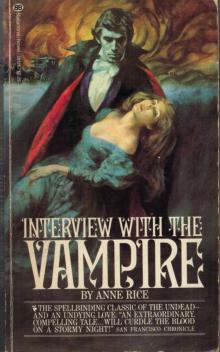 Interview with the Vampire
Interview with the Vampire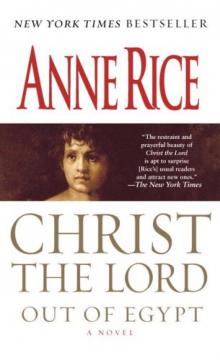 Christ the Lord: Out of Egypt
Christ the Lord: Out of Egypt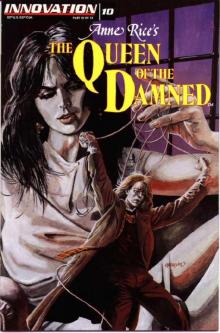 The Queen Of The Damned
The Queen Of The Damned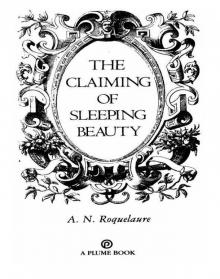 The Claiming of Sleeping Beauty
The Claiming of Sleeping Beauty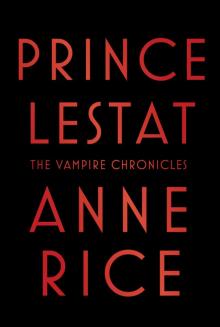 Prince Lestat
Prince Lestat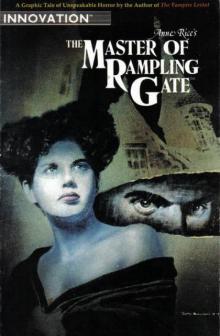 The Master of Rampling Gate
The Master of Rampling Gate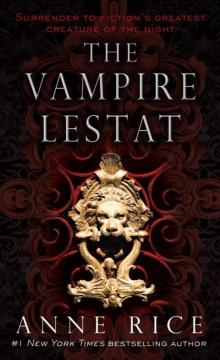 The Vampire Lestat
The Vampire Lestat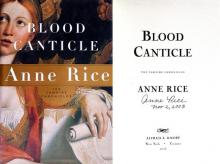 Blood Canticle
Blood Canticle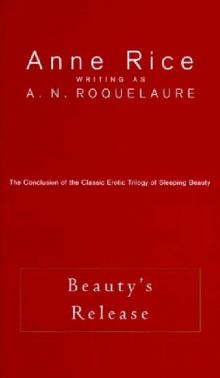 Beauty's Release
Beauty's Release Pandora
Pandora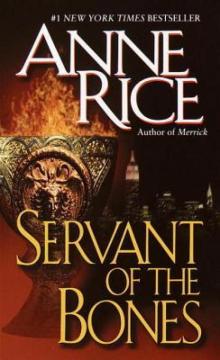 Servant of the Bones
Servant of the Bones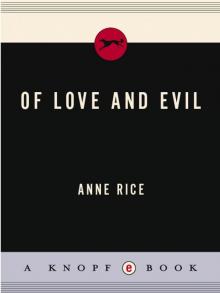 Of Love and Evil
Of Love and Evil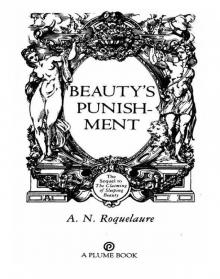 Beauty's Punishment
Beauty's Punishment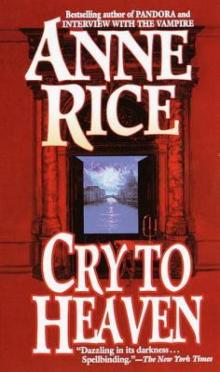 Cry to Heaven
Cry to Heaven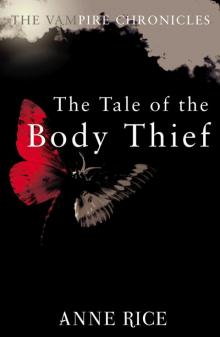 The Tale of the Body Thief
The Tale of the Body Thief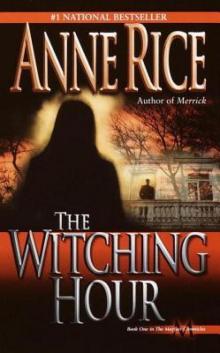 The Witching Hour
The Witching Hour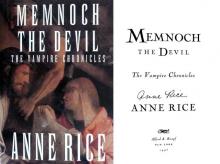 Memnoch the Devil
Memnoch the Devil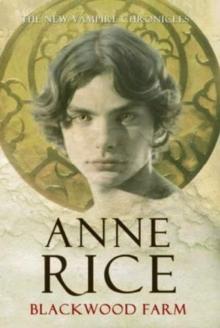 Blackwood Farm
Blackwood Farm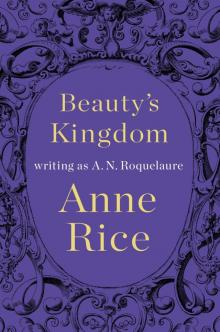 Beauty's Kingdom
Beauty's Kingdom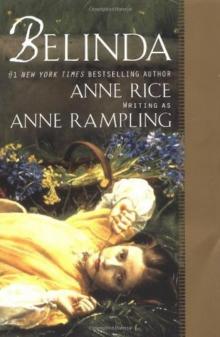 Belinda
Belinda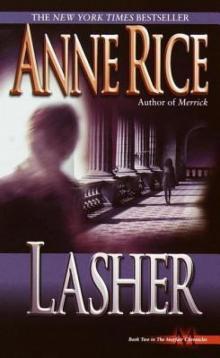 Lasher
Lasher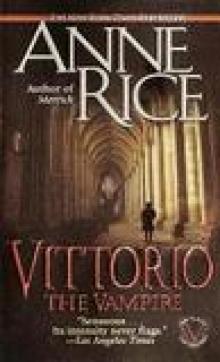 Vittorio, the Vampire
Vittorio, the Vampire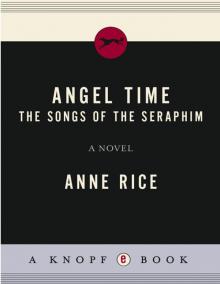 Angel Time
Angel Time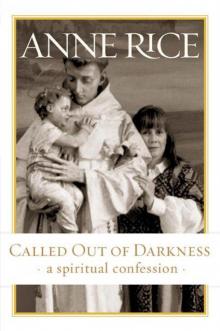 Called Out of Darkness: A Spiritual Confession
Called Out of Darkness: A Spiritual Confession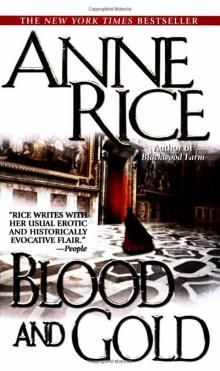 Blood And Gold
Blood And Gold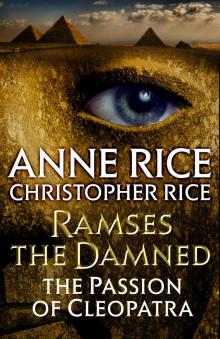 The Passion of Cleopatra
The Passion of Cleopatra Taltos
Taltos Exit to Eden
Exit to Eden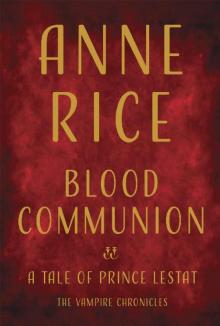 Blood Communion (The Vampire Chronicles #13)
Blood Communion (The Vampire Chronicles #13) The Wolf Gift
The Wolf Gift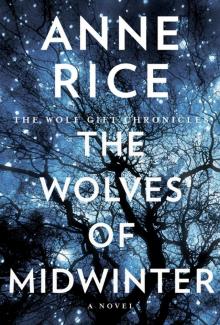 The Wolves of Midwinter
The Wolves of Midwinter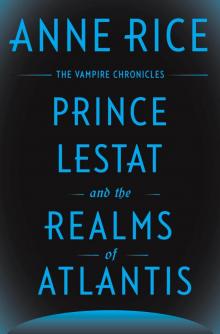 Prince Lestat and the Realms of Atlantis
Prince Lestat and the Realms of Atlantis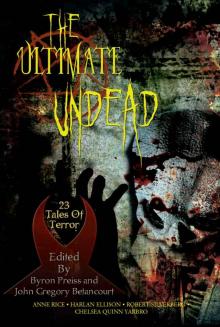 The Ultimate Undead
The Ultimate Undead The Vampire Lestat tvc-2
The Vampire Lestat tvc-2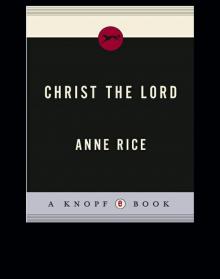 The Road to Cana
The Road to Cana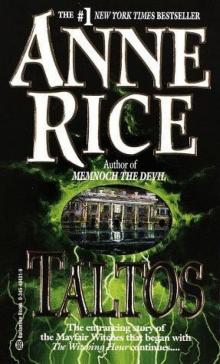 Taltos lotmw-3
Taltos lotmw-3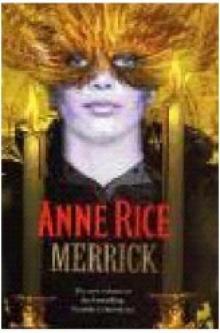 Merrick tvc-7
Merrick tvc-7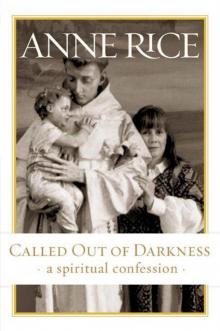 Called Out of Darkness
Called Out of Darkness Pandora - New Vampires 01
Pandora - New Vampires 01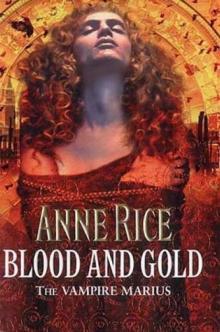 Bllod and Gold
Bllod and Gold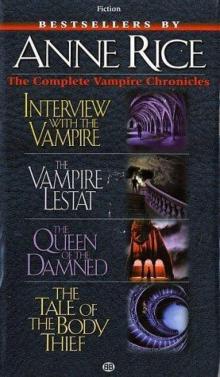 The Queen Of the Damned: Vampire Chronicles
The Queen Of the Damned: Vampire Chronicles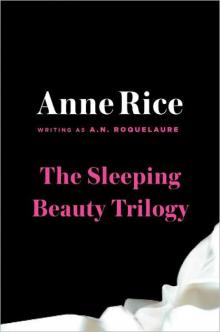 The Sleeping Beauty Trilogy
The Sleeping Beauty Trilogy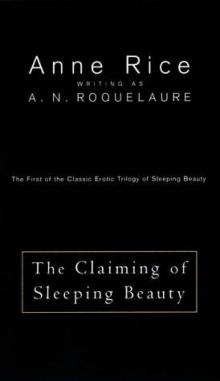 The Claiming of Sleeping Beauty b-1
The Claiming of Sleeping Beauty b-1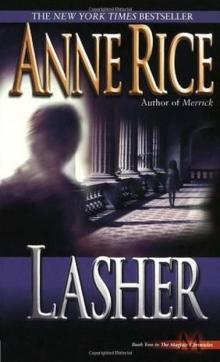 Lasher lotmw-2
Lasher lotmw-2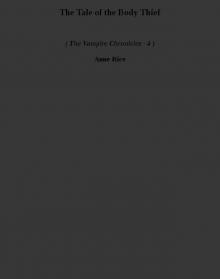 The Tale of the Body Thief tvc-4
The Tale of the Body Thief tvc-4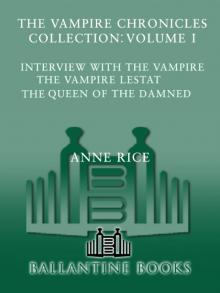 The Vampire Chronicles Collection
The Vampire Chronicles Collection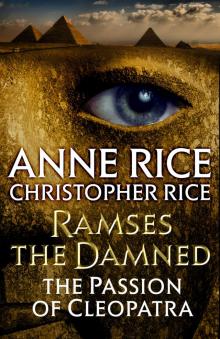 Ramses the Damned
Ramses the Damned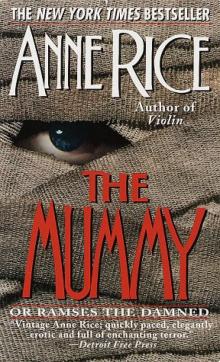 The Mummy - or Ramses the Damned
The Mummy - or Ramses the Damned Vittorio, The Vampire - New Vampires 02
Vittorio, The Vampire - New Vampires 02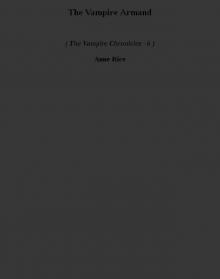 The Vampire Armand tvc-6
The Vampire Armand tvc-6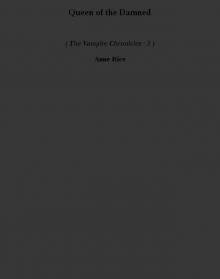 Queen of the Damned tvc-3
Queen of the Damned tvc-3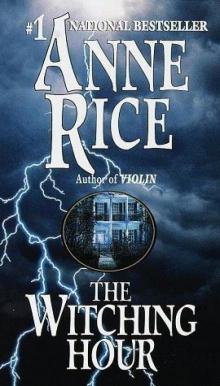 The witching hour lotmw-1
The witching hour lotmw-1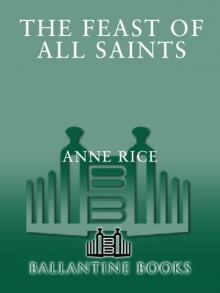 Feast of All Saints
Feast of All Saints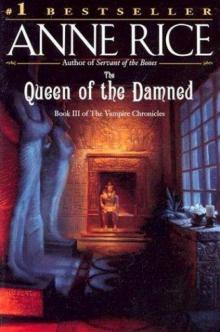 Queen of the Damned
Queen of the Damned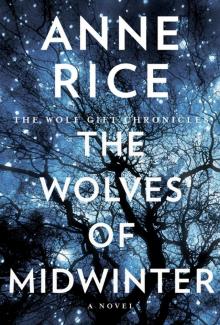 The Wolves of Midwinter twgc-2
The Wolves of Midwinter twgc-2 The Mummy
The Mummy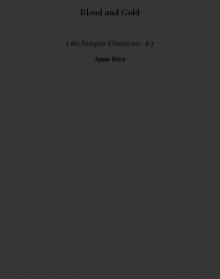 Blood and Gold tvc-8
Blood and Gold tvc-8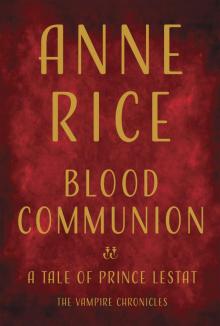 Blood Communion
Blood Communion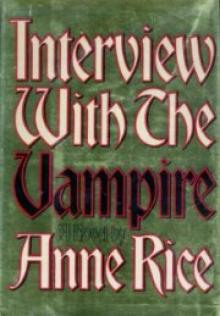 Interview with the Vampire tvc-1
Interview with the Vampire tvc-1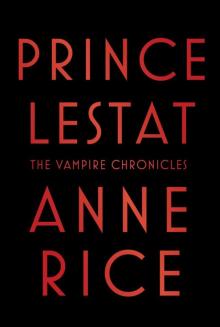 Prince Lestat: The Vampire Chronicles
Prince Lestat: The Vampire Chronicles